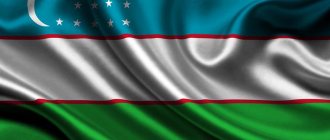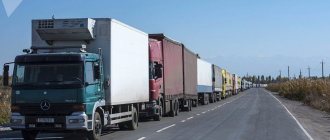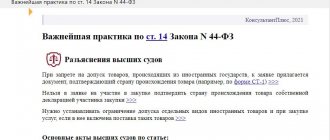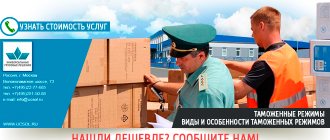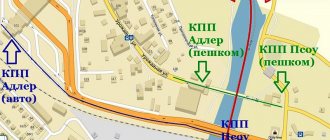Customs clearance in Uzbekistan
Uzbekistan is a presidential state, geographically it is located in the center of Central Asia. Just like neighboring states (Kyrgyzstan in the east, Kazakhstan in the northeast and north, Turkmenistan in the southwest and south), it was part of the USSR. This is the reason for the wide integration of the country with constantly growing trade turnover into the business processes of the region. Having strong capabilities for the import and export of goods, including transit, many foreign trade participants are committed to working with this area, in particular with Uzbekistan. Significant economic reforms have opened up new opportunities for cooperation between the countries of the region. Trade relations between the Russian Federation and Uzbekistan are reaching a new level, in which our country becomes a leading exporter to Uzbekistan, while not forgetting about the import of the most traditional goods to Russia.
CLEARANCE IN UZBEKISTAN
1. Documents required for legal entities (See)
2. Documents required for individual entrepreneurs (See)
3. Documents required for individuals (See)
Based on the nature of the cargo, documents such as an electronic declaration of goods for export to Uzbekistan and other documents may be required. This is an important circumstance, and you must undergo free consultation even before the start of the export operation, because registration of documents with errors can lead to dire consequences at the customs post. You can find out all the information from the specialists of the Standard Line company by calling +7. We will be happy to assist you!
The customs representative (broker for import into the territory of Uzbekistan) puts forward his proposals and services for customs clearance of exports to Uzbekistan: preparation for transportation of a consignment, preparation of accompanying documentation and going through the customs declaration process.
Customs broker experts know the intricacies and all the slightest nuances of export customs clearance and related logistics forwarding, and know how to correctly deliver goods to Uzbekistan. Specialists can organize:
· movement of cargo from all regions of the Russian Federation to Uzbekistan; · preparation of a list of documents for export to Uzbekistan; · preparation for the process of registration and inspection of cargo at the customs post; · electronic declaration of goods; · transportation insurance; · organization of terminal processing.
Stages of providing customs clearance services to Uzbekistan
Exporting to Uzbekistan is a process that requires special attention. It is very important to go through all the procedures the first time, because it literally saves money, but also works for export supplies that you will carry out in the future. The help of a customs broker may be required by companies that cannot directly operate in the international market. In this case, our company’s specialists will propose a customs clearance scheme under the “stamp” of the customs broker. The broker takes over all processes and organizes a foreign trade transaction with a client in Uzbekistan.
Quarantine restrictions
When crossing the border of a Central Asian republic, citizens are required to show a certificate of a negative result of a PCR test for Covid, which must be done no earlier than 72 hours before departure. The certificate must be in Russian or English, and it must also indicate that it is a PCR method, and not an antibody test. If the test period has expired, the person will be sent to take the test at the airport at his own expense. The test results are recognized by the Uzbek side without claims if the analysis was carried out in special laboratories that do not raise doubts about their correctness. Children under two years of age do not require a certificate. Within a week from the date of arrival, a person must undergo a repeat PCR test for coronavirus infection. A strict mask regime and social distancing requirements apply throughout the country.
Standard Line will act as a representative of your organization. The whole process looks like this:
- The customs representative concludes an international contract for the supply of cargo and issues an invoice for payment;
- Next, we re-issue your invoice to a partner in the Republic of Uzbekistan, but on behalf of the Standard Line company. All payments and expenses for transportation and customs clearance of the cargo are immediately added to the amount for the goods. When the client knows the final cost of the cargo and does not worry about additional payments, it is easier for him to make a decision and simply wait for the arrival of the goods;
- The next stage is the conclusion of an agreement on the supply of cargo to the company with the customer;
- The partner from the Republic of Uzbekistan makes payment on the invoice, which we, in turn, transfer to you;
- At the last stage, the goods are moved from your warehouse and sent to Uzbekistan. We will provide all documents to confirm the transaction and customs clearance.
Approximately the same scheme can be used when importing from Uzbekistan, in which the customs representative acts as a foreign trade agent and helps our partners at all stages of importing cargo from Uzbekistan.
Working in this direction, we guarantee full logistics, legal and customs support. The consolidation of high-quality cargo delivery services from one time-tested transport and logistics broker affects not only accelerated delivery times, but also the quality of the deliveries themselves.
When exporting, we issue a CMR with all stamps. We put “RELEASE ALLOWED” and hand it over to the driver. We mark and issue our CMRs.
Customs clearance of samples of goods from Uzbekistan for subsequent certification
Samples of goods from Uzbekistan are often required to conduct tests and confirm compliance with the requirements of the Technical Regulations of the EAEU or to obtain other types of necessary permits.
We provide a range of services for working with product samples, including selection, delivery, customs clearance and laboratory testing of samples, as well as services for obtaining various permits necessary for the import and/or subsequent sale of products in the EAEU.
To obtain more detailed information about customs clearance of goods from Uzbekistan, use any convenient feedback form located on our website or call back service.
Secrets of transporting goods to Uzbekistan
The secret to delivering goods to Uzbekistan is not only to find a reliable broker in Russia (Moscow), but also to find a customs broker in Uzbekistan.
An unverified broker can tell us first about payments to the state, and then, when you deliver the cargo, he will say that all the laws have changed in Uzbekistan, and you will now pay different duties. That is why before customs clearance in Uzbekistan, sending cargo to Uzbekistan or before air delivery, all these points need to be agreed upon.
We coordinate the customs declaration with a customs broker in Uzbekistan. The customs broker there coordinates with customs, and after that we send the cargo. This is the secret of correct delivery and customs clearance of cargo to Uzbekistan.
If your customs broker in Uzbekistan does not do this, you may incur additional costs. Therefore, you need not only to find a reliable customs broker in Moscow, because the customs representative in Moscow is not familiar with the procedures in Uzbekistan, but also to find a competent broker in this country.
Exporting to Uzbekistan does not include any risks associated with cargo delay at customs. Also, when exporting, customs duties are not paid to our state, but are paid only in Uzbekistan. If you are planning to export to Uzbekistan, it is very important to find a broker in Uzbekistan who will coordinate all the selected HS codes, description of the goods, customs payments with a customs official.
Uzbekistan
Customs clearance is part of the complex of foreign economic activities. We carry out customs clearance in Moscow, St. Petersburg, Nizhny Novgorod, Yekaterinburg, Chelyabinsk, Vladivostok, Kaliningrad and other cities of Russia. The cost of customs clearance of goods starts from 7,000 rubles and is included in the buyer’s invoice.
By delegating exports to our company, you will no longer need to understand HS codes, determine and pay the amount of customs duties, or prepare documents for customs clearance.
Thus, by working with IFC Titan74 LLC, you will avoid a number of possible risks associated not only with customs clearance, but also with the bank and the tax office.
Independent export registration by a Russian company
To do this, you will need professional knowledge and experience at each stage:
- registration of a foreign trade contract;
- checking goods for licensing and inclusion in dual-use lists;
- registration of a certificate of raw materials, certificate ST-1;
- customs clearance of goods;
- searching for a transport company and organizing delivery;
- implementation of currency control in the servicing bank;
- preparing a package of documents and submitting an application to the tax service.
Depending on which HS code the product falls under, additional documents may also be required for export:
- Export license from the Ministry of Economic Development and Trade;
- Export permits from the Ministry of Defense, FSB, FAPRID, Ministry of Health, Ministry of Culture, Ministry of Natural Resources and other special departments;
- Export certificates: veterinary, phytosanitary;
- Expert opinions (documents confirming that the goods are not subject to export control, issued by the competent authorities).
The list of documents for shipment to Uzbekistan is similar to the list for other non-EAEU countries.
Providing export documents to the Federal Tax Service
Organizations carrying out export operations and not applying for a waiver are required to confirm the 0% VAT rate - submit a declaration and have the right to a refund of incoming VAT amounts.
Please note that it is not possible to submit a separate declaration for export activities; you must provide data on the entire volume of business transactions in the organization.
To confirm, you must provide the following documents:
- Contract with a foreign buyer.
- Customs declaration on shipment of goods. Now the tax office does not require a customs resolution on the release of exports. A copy of the declaration can be downloaded from the personal account of a foreign trade participant or through the Unified Automated Information System of customs authorities.
- Transport documents (CMR). When sending by railway, sea or air transport, a railway or air waybill or bill of lading is required.
- Shipping documents.
- Declaration.
Each document must clearly indicate the details, all names and signatures of the counterparties.
A package of documents for each shipment must be submitted no later than 180 calendar days, counting from the date of placing the goods under the customs export procedure.
From the date the documentation is received by the tax authorities, a desk audit begins. The period of the desk audit was reduced from 3 months to 2 from 09/04/2018. If during the inspection the inspector has grounds to suspect a violation or errors are discovered, the period can be extended to 3 months. If an updated declaration is provided, a new check begins.
The Federal Tax Service will check:
- whether due diligence was exercised in selecting the supplier,
- presence and reality of signatures of authorized persons on shipping documents,
- compliance of data in invoices and contracts,
- witnesses to transactions,
- production and warehouses,
- no debt to the budget,
- availability of translation into Russian of all documentation,
- And so on.
In practice, the tax inspector may request additional documents, so it is necessary to ensure that all documents accompanying the transaction are correctly completed and stored securely.
The Federal Tax Service may issue a verdict of refusal or partial compensation. If you disagree with this decision, you should appeal to a higher authority.
In case of correctly completed documents and a positive decision from the tax authorities after a desk audit, 6-8 months after shipment, you will be reimbursed from the budget for the VAT previously paid for the product, or the components and raw materials used in its manufacture.
You can omit the stage of confirming the zero VAT rate and refuse to apply it.
Difficulties in independently processing exports
- Currency control - for a contract amount of more than 6 million rubles, you will need to comply with currency legislation, because in case of violation of the deadlines for the provision of documents, significant fines for legal entities are possible. The bank has the right to request copies of contracts worth more than 200 thousand rubles.
- Confirmation of the zero VAT rate for the Federal Tax Service - if it cannot be confirmed for any reason, you will have to pay the entire amount of VAT to the budget at the full rate plus penalties from the date of shipment. In addition, a desk audit of the entire activity of the enterprise will be carried out - only “white” companies with experienced accountants and lawyers can pass it.
- Passing customs control - it is very important to choose the correct HS code, otherwise an additional amount may be charged that you will have to pay at your own expense, and not at the expense of the buyer. Correctly filling out the declaration and complying with the letter of the law is the key to successful passage through the customs post.
- Registration of a phytosanitary certificate - if the goods or pallets are regulated products. To obtain a conclusion, you need to agree with the inspector on the date and time of his visit before loading directly onto the declared vehicle, indicating its license plate number. Unfortunately, some people learn about the existence of the Office of the Federal Service for Veterinary and Phytosanitary Surveillance only after the cargo arrives at customs.
- Selecting the optimal solution for cargo delivery – in case the buyer did not choose self-pickup. A mistake in choosing a transport company can lead to many troubles: violation of cargo transportation deadlines, loss of goods, refusal to reimburse the cost of cargo, etc.
- Other completely unexpected nuances .
Export and delivery schemes to Uzbekistan
When exporting to Uzbekistan, many nuances arise, and often many brokers refuse to provide services. We offer all customs clearance schemes.
1 scheme of customs clearance and transportation to Uzbekistan
You buy goods for your Russian company, send us 3 documents - invoice, contract, waybill. We prepare all of these 3 documents and submit them to customs under our brokerage seal. The cost of the service is 23,000 rubles.
2 scheme of customs clearance and transportation to Uzbekistan
The scheme is that you, as an individual, purchased the cargo and do not want to send it on your own behalf. This product is a commercial batch - 1 car contains 20 tons of auto parts. It is impossible for an individual to register this product, since customs in any case recognizes a large number of goods purchased by one individual as a commercial consignment. Therefore, if an individual goes to customs and asks to fill out a customs declaration or finds a broker, then the customs will refuse both the broker and the individual, since this cargo is a commercial shipment and needs to be sent from the company. And FL has already bought the cargo and doesn’t know what to do next. We help solve this problem.
Very often individuals buy a large batch of goods and contact us. We take this cargo from FL and send it from our company. At the same time, we do not have to buy this product from the seller who sold it to the individual, but we simply take the cargo onto our balance sheet, clear it through customs on our own behalf and send it for export. Not everyone knows how to put these secrets into practice, which is why our service is exclusive. As a rule, persons wishing to export cargo have nothing in their hands except the goods themselves. Therefore, we will accept it on the balance sheet of our company and customs clear it to any individual entrepreneur, legal entity, or individual entrepreneur. We will issue ST-1, coordinate everything with your broker in Uzbekistan, adjust the codes, adjust to the requirements of Uzbek legislation and your cargo will be safely cleared through customs. The cost of this service is 35,000 rubles
3 scheme of customs clearance and delivery to Uzbekistan
Scheme 3 – cases when we offer to buy goods in Russia from our company and sell them abroad. We buy cargo and sell it to an Uzbek company. As a rule, Uzbek companies transfer money to us for the goods, and we ourselves send this money to the supplier/manufacturer in Russia. The transaction goes through our company. We help you arrange the goods.
This scheme is often used when you are an individual, you do not have a company and you need a representative in Russia who can correctly purchase the goods, clear them through customs, act as a foreign trade agent for the purchase and customs clearance of these goods to Uzbekistan, and also carry out transportation if necessary . In this case, we also issue three documents for you - an air waybill (or CMR), an invoice and a CT-1 certificate. The cost of this service is 35,000 rubles
Features of container transportation
Sea transport
Long processing of containers at ports often leads to the fact that ships can wait for days for unloading in order to clear customs. In order to remove a container from the port, it is necessary to complete a reverse transit procedure, and then also pay for the transportation of the container under customs regime.
Despite all the attractiveness of the model from the point of view of logistics optimization, for consignees a dry port results in serious costs that do not cover the benefits of optimization.
Automobile transport
With the onset of cold weather, traffic is not so intense. However, the speed of cargo transportation should depend not only on weather conditions. Factors such as traffic density and road conditions also have an impact. In addition, there are restrictions on the transportation of non-standard cargo, and if the cargo is to be transported over a long distance, the client will have to pay a substantial amount of money.
Air transportation
There may be difficulties with paperwork, but you can contact the company’s employees who can help you solve this problem for a reasonable fee. The flight schedule may be adjusted or changed due to sharply worsened weather conditions. However, this is not a guarantee that the price will be changed.
Free trade Area
In 1994, the Agreement “On the creation of a free trade zone” was concluded, the participants of which are some CIS countries - Armenia, Belarus, Kazakhstan, Kyrgyzstan, the Russian Federation, Tajikistan, Moldova, Uzbekistan. The agreement simplifies the process of carrying out customs procedures between participating states. The agreement replaced more than a hundred international documents regulating the free trade regime in the CIS.
As participants in the FTA, the Russian Federation and Uzbekistan acquire the right to enjoy preferences and benefits for the payment of customs duties when importing goods. Thanks to this, favorable conditions are created for the development of trade relations between these countries.
Export and import of goods in Uzbekistan
The main points of import and export operations in Uzbekistan are located in cities of significant size: Tashkent, Samarkand, Bukhara, Fergana, Andijan, Namangan, Urgench, Karshi, Kokand, Nukus. The main requests for transportation of export cargo come from these cities, and the largest warehouses are located there, consolidating import cargo from Europe, Russia, China, America, etc., in total there are about 78 countries with which goods are exchanged. Economic cooperation, first of all, is developing with the Central Asian countries, Russia and China. There are many restrictions on the route of imported and exported goods in the form of border and customs posts, since Uzbekistan is only a member of the CIS, having refused to join the EAEU, for this reason, in terms of customs clearance or customs clearance of goods, most favored nation conditions for customs operations apply. This means that the procedures are quite simplified, but they are present and have their own nuances, in contrast to the EAEU customs rules in force in Russia, Kazakhstan, Belarus, Armenia and Kyrgyzstan.
Having been working in the Asian direction for several decades, we can offer services for customs clearance of deliveries to Uzbekistan and back.
Secrets of customs clearance in Uzbekistan
There are a number of features of customs clearance in Uzbekistan:
- When providing CT-1, customs duties are not imposed on goods originating from and imported from the territory of FTA member countries.
- When importing goods without a certificate of origin, the customs duty rate is doubled
- Favorable conditions have been created for importing equipment. When importing new equipment that has the appropriate documents, benefits are provided, such as exemptions from customs duties and VAT
- An individual entrepreneur has the right to import goods for commercial purposes, while a sole proprietor can import cargo only for his own needs (not for sale)
- If duty-free import standards are exceeded, individuals must fill out a declaration and pay customs duties
CONTAINER
Information from the Federal Customs Service of Russia dated February 4, 2016.
“On issues of carrying out customs operations in relation to goods for personal use of individuals arriving (relocating) for permanent residence in the Russian Federation, refugees and internally displaced persons"
Individuals moving to the Russian Federation for permanent residence can be divided into the following categories:
1) refugees (status regulated by Federal Law of February 19, 1993 N 4528-1 “On Refugees”);
2) forced migrants (the status is regulated by the Law of the Russian Federation of February 19, 1993 N 4530-1 “On forced migrants”);
3) individuals relocating in accordance with the State program to assist the voluntary resettlement of compatriots to the Russian Federation (the status is regulated by Decree of the President of the Russian Federation of June 22, 2006 N 637 “On measures to assist the voluntary resettlement of compatriots to the Russian Federation”);
4) individuals relocating in accordance with international treaties of the Russian Federation on regulating the resettlement process and protecting the rights of migrants (international treaties with the Republic of Latvia and Turkmenistan are in force);
5) individuals moving to a permanent place of residence outside the specified acts of legislation of the Russian Federation.
Goods for personal use transported by refugees, internally displaced persons, as well as those arriving (resettled) in a member state of the Customs Union for permanent residence are subject to customs declaration in writing using a passenger customs declaration (hereinafter referred to as the PCD), the form and procedure for filling which approved by Decision of the Customs Union Commission of June 18, 2010 N 287.
The PTD is filled out by an individual and submitted to the customs authority. Submission of the PDD must be accompanied by the submission to the customs authority of documents confirming the information stated in it, including documents confirming the recognition of an individual as a refugee, forced migrant, as well as arriving (relocating) to a member state of the Customs Union for permanent residence in the manner established by law member states of the Customs Union.
Customs operations related to the release of goods for personal use are carried out at the place of arrival (place of delivery) in the customs territory of the Customs Union and (or) at the customs authority in the region of activity of which the individual permanently or temporarily resides.
In accordance with paragraphs 8, 12 and 24 of Appendix 3 to the Agreement between the Government of the Russian Federation, the Government of the Republic of Belarus and the Government of the Republic of Kazakhstan dated June 18, 2010 “On the procedure for the movement by individuals of goods for personal use across the customs border of the Customs Union and the performance of customs operations related to their release" (hereinafter referred to as the Agreement), persons recognized in accordance with the legislation of a member state of the Customs Union as refugees, forced migrants, as well as those arriving (relocating) to a member state of the Customs Union for permanent residence may import into the customs territory of the Customs Union and receive used goods for personal use delivered by the carrier to their address with exemption from customs duties, regardless of customs value and weight, as well as a passenger car and a trailer (in the amount of no more than one car and one trailer) while simultaneously performing the following conditions:
— the import of goods and vehicles into the customs territory of the Customs Union from the country of previous residence is carried out no later than 18 months from the date of arrival of the specified person for permanent residence in a member state of the Customs Union;
- goods were purchased before the date of recognition of individuals in accordance with the legislation of a member state of the Customs Union as refugees, forced migrants or before the date of arrival (resettlement) for permanent residence in a member state of the Customs Union, and the car and trailer are owned by these persons and registered in their country of previous residence for at least 6 months before the date of their arrival (resettlement) for permanent residence.
In accordance with subparagraph 2 of paragraph 1 of Article 2 of the Agreement, the date of arrival (resettlement) of an individual for permanent residence in a member state of the Customs Union is the date of issuance of a document confirming receipt of the status of a refugee, forced migrant or recognition of the person as having arrived (resettled) for permanent residence to a member state of the Customs Union in accordance with the legislation of that state.
Goods for personal use of an individual arriving (relocating) for permanent residence in a state - a member of the Customs Union, a refugee, a forced migrant may be placed in temporary storage for the period until receipt of documents confirming his arrival (relocation) for permanent residence in the state - member of the Customs Union, recognition of a person as a refugee, forced migrant (clause 27 of the Instructions on the procedure for performing customs operations in relation to goods for personal use moved by individuals across the customs border, and reflecting the fact of recognition of such goods as not under customs control, approved by the Decision of the Commission of the Customs Union dated June 18, 2010 N 311).
Documents confirming the recognition of a foreign individual as moving to the Russian Federation for permanent residence are:
— permission to move (resettlement) from Turkmenistan to the Russian Federation, provided for by the Agreement between the Russian Federation and Turkmenistan on regulating the resettlement process and protecting the rights of migrants dated December 23, 1993;
— a certificate of a migrant from the Republic of Latvia to the Russian Federation, provided for by the Agreement between the Government of the Russian Federation and the Government of the Republic of Latvia on regulating the resettlement process and protecting the rights of migrants dated June 2, 1993;
— certificate of a participant in the State program to assist the voluntary resettlement of compatriots living abroad to the Russian Federation, approved by Decree of the President of the Russian Federation of June 22, 2006 N 637;
— a residence permit obtained in the manner established by Federal Law No. 115-FZ of July 25, 2002 “On the legal status of foreign citizens in the Russian Federation.”
Also, such documents may be documents confirming the acquisition of citizenship of the Russian Federation, accompanied by obtaining permanent registration at the place of residence in the Russian Federation.
In the case of relocation of an individual who is a citizen of the Russian Federation to a permanent place of residence in the Russian Federation, a document confirming the intention of such a person to permanently reside in the Russian Federation may be considered as having received permanent registration at the place of residence in the Russian Federation.
Documents that may indirectly indicate a person’s intention to move to a new permanent place of residence, for example, such as a departure certificate, documents on deregistration at the place of residence in a foreign country, stamps of foreign government bodies in the person’s foreign passport about resettlement to a permanent place of residence to the Russian Federation, documents on dismissal from work in a foreign country, a temporary residence permit in the Russian Federation, etc. do not confirm the fact that the person is moving to a permanent place of residence in the Russian Federation.
With regard to vehicles, it is necessary to keep in mind that if the environmental class of the vehicle (chassis) does not comply with the requirements of the technical regulations, the PTS will not be issued (clause 70 of the Regulations on vehicle passports and vehicle chassis passports, approved by order of the Ministry of Internal Affairs of Russia, the Ministry of Industry and Energy of Russia, the Ministry of Economic Development of Russia dated June 23, 2005 N 496/192/134).
In accordance with the Technical Regulations, the requirements for technical emission standards for automotive vehicles were determined at the level of environmental class not lower than Euro 4.
When issuing PTS, customs authorities monitor compliance with the environmental class of vehicles based on the information contained in the certificate of safety of vehicle design (hereinafter referred to as SSBKTS) issued by certification bodies accredited by Rostekhregulirovanie.
When issuing a PTS, line 17 of the PTS “Ecological class” is filled out without providing an SBCTS only for vehicles imported:
— participants in the State program to assist the voluntary resettlement of compatriots living abroad to the Russian Federation, or duly recognized refugees or forced migrants;
- thirty or more years have passed since the year of manufacture, which are not used for commercial purposes, have the original engine, body and (if any) frame, preserved or restored to the original condition, the types and categories of which are determined by the Government of the Russian Federation.
The technical regulations do not apply, inter alia, to motor vehicles imported into the territory of the Russian Federation as personal property by individuals who are participants in the State program and members of their families to assist the voluntary resettlement of compatriots living abroad to the Russian Federation, or who are recognized in the established order of refugees or internally displaced persons.
PTS for vehicles whose environmental class does not meet the established requirements are issued by customs authorities to owners belonging to one of the specified categories of individuals, only for one vehicle.
In addition, for each wheeled vehicle imported into the Russian Federation or manufactured in the Russian Federation, a recycling fee is paid in order to ensure environmental safety (Federal Law of June 24, 1998 N 89-FZ “On Production and Consumption Waste”) .
PTS are issued only for vehicles in respect of which a recycling fee has been paid or in the cases established by paragraph 6 of Article 24.1 of the said Federal Law.
In accordance with this paragraph, family members of a participant in the State Program for Assisting the Voluntary Resettlement of Compatriots Living Abroad to the Russian Federation are not exempt from paying the recycling fee.
Order of the Federal Customs Service of Russia dated June 9, 2012 N 1128 approved the Administrative Regulations of the Federal Customs Service for the provision of public services for informing about acts of customs legislation of the Customs Union, legislation of the Russian Federation on customs and other legal acts of the Russian Federation in the field of customs and consulting on issues of customs affairs and other issues within the competence of customs authorities.
In accordance with paragraph 15 of this regulation, consultations on customs matters and other issues within the competence of customs authorities are provided by regional customs departments and customs offices.
Information about customs authorities and relevant departments providing information and advice on customs matters and other issues within the competence of customs authorities is posted on the official website of the Federal Customs Service of Russia on the Internet information and telecommunications network www.customs.ru in the section “Information and advice on issues of customs affairs".
Restrictions and prohibitions on the import/export of goods to/from Uzbekistan
There are goods in Uzbekistan, the export of which is regulated by law. For example, the export of goods such as meat, cereals, grain, flour, bakery products, sugar, silkworm cocoons, scrap and waste of non-ferrous metals, goods of cultural value, etc., is carried out on the basis of decisions of the President or the Government of the Republic of Uzbekistan.
There is also a list of goods prohibited for import. This list includes printed works, photographs, manuscripts, drawings, audio, video, film materials and other products aimed at undermining the state and social system, promoting war, terrorism, violence, racism and its varieties.
Rules for leaving the country
First of all, employees of the Uzbek customs service pay attention to the amount of cash that the tourist is carrying with him. Due to the scarcity of foreign exchange, there are strict regulations.
- Firstly, you cannot export more currency than was imported.
- Secondly, an amount that exceeds this amount can be taken out of the country only with the permission of the Central Bank.
A resident of Uzbekistan traveling outside the country can take out $2,000 without permission. To export a larger amount, the consent of the Central Bank will be required. You can take out traveler's checks or bank cards.
When leaving the country, you should first take into account the fact that many items are prohibited for export. And punishment for violating customs rules is not always limited to an administrative fine. For some goods you can get a real prison sentence.
Prohibited goods for export from the country
- silkworm cocoons and materials;
- almost all grain crops;
- ethanol;
- natural pearls and items containing them;
- fur raw materials;
- leather raw materials;
- meat products;
- weapons, military equipment;
- non-ferrous metal scrap;
- horns of some artiodactyl animals.
It is also prohibited to export historical values, animals of rare species, narcotic, psychotropic or explosive substances. There are restrictions on the export of medicines.
The declaration of customs value of exported goods is not completed in such cases
- if the customs value of the exported consignment of goods does not exceed an amount equivalent to 1000 US dollars (except for the export of goods for commercial purposes);
- when exporting goods that are personal (economic) property of individuals when their place of residence changes (if there is a mark on deregistration at the previous place of residence);
- when exporting personal property of citizens of the Republic of Uzbekistan going on long business trips, as well as exporting personal property previously imported by citizens of other states leaving the territory of the Republic of Uzbekistan;
- when exporting samples, promotional materials, goods used for humanitarian aid, and other goods not intended for commercial activities.
Export from Russia, import to Uzbekistan
Exports from Russia to Uzbekistan consist of equipment, wood, ferrous and non-ferrous metals, medical, microbiological and food products, information technologies, etc. Such a wide range of cargo range forces customs brokers to work harder.
Every day a large number of applications are submitted for customs clearance of exports from Russia. Only professional participants in foreign trade activities can process them efficiently. The customs broker organizes an integrated approach to solving problems that have become an obstacle on the way of cargo to its recipient in Uzbekistan. Well-developed transport and customs logistics schemes have a beneficial effect on the financial condition of our partners.
Import from Uzbekistan
Imports from Uzbekistan are mainly represented by the following goods:
- Ferrous and non-ferrous metals;
- Uranium ore;
- Gold reserves;
- Textile products;
- Cotton;
- Silk;
- Vegetables and fruits;
- Fertilizers;
- Spare parts for cars.
If you have questions about services, payment or any other questions, please contact our specialists by phone in Moscow (multi-channel)
If you have questions about services, payment or any other questions, please contact our specialists by phone in Moscow: 8 Multi-channel phone:
Request a call Make a request
Differences in customs clearance in Russia and Uzbekistan
Despite the dynamic development of mutually beneficial trade and economic relations, exports to Uzbekistan from the Russian Federation are accompanied by bureaucratic difficulties. The current customs legislation of a given country has rules that apply only to deliveries to Uzbekistan. This makes it much more difficult for new foreign trade participants to enter a promising market. Before exporting, it is necessary to ensure that the shipping documents comply with the requirements of the legislation of Uzbekistan.
When declaring electronically, scans of the original shipping documents with stamps and marks on the passage of customs posts are submitted to the customs authorities of Uzbekistan along with the customs declaration. In this regard, it is necessary to carefully approach the process of completing documentation on the territory of the Russian Federation, since subsequent correction of previously made errors in the accompanying documents will lead to a temporary delay in the customs clearance procedure on the territory of Uzbekistan. Therefore, for the correct process of customs clearance of cargo, it would be wise to turn to professional participants in foreign trade activities.
One of the important factors of customs clearance in Uzbekistan is the determination of the country of origin of the goods. For customs purposes, the origin of the goods is confirmed by documents - the original certificate of origin of the goods. In Russia, not only a certificate of origin, but also a declaration of origin of a product can be used for these purposes.
In Uzbekistan, it is possible to issue a CPO (customs receipt order) upon receipt of goods to a legal entity worth less than 10 minimum wages (MW), sent by postal courier service.
Import and export of cash currency outside Uzbekistan
Import of currency
According to the legislation of Uzbekistan, foreign currency can be imported into the territory of the state in unlimited quantities. At the time of import, the traveler will have to fill out a customs declaration on Form T-6.
If desired, a certain amount of currency can be left for storage and picked up on the way back. There are no fees charged. The customs officer must issue one copy of the receipt, Form TC-21, which is stamped.
As for the import of national currency, it is limited to 50 minimum wages. If the imported amount is greater, the customs authority must issue a certificate in the legally prescribed form.
You should also know that import and export of cash national currency of the Republic of Uzbekistan by legal entities - residents and non-residents, with the exception of the Central Bank of the Republic of Uzbekistan, as well as authorized banks with permission from the Central Bank, is not allowed.
Export of currency
Since there is a shortage of foreign currency in the state, the export of cash is strictly regulated. The traveler must not export more than the amount he brought in. When the amount of currency exported by a non-resident exceeds the norm, a banking permit is required.
Allowed
- residents up to an amount equivalent to 5,000 (five thousand) US dollars without obtaining a permit;
- for residents in excess of an amount equivalent to 5000 (five thousand) US dollars - with the permission of the Central Bank of the Republic of Uzbekistan;
- for non-residents - within the amount previously imported into the republic in accordance with the customs declaration. The basis for the export by a non-resident of cash foreign currency in excess of the amount specified in the customs declaration of form T-6 (filled out upon import) or certificate TS-28 (issued by the customs authority upon import) is a banking permit;
- The export of traveler's checks is permitted with an indication of their quantity in the T-6 customs declaration.
Transferring a bank permit to export cash foreign currency to other persons is not permitted.
Counterfeit cash foreign currency discovered during customs control is not subject to entry. Counterfeit currency is delayed with the execution of procedural documents in the manner prescribed by law.
Transportation and delivery of goods to Uzbekistan
Upon request to the Standard Line company, we can send any cargo to Uzbekistan by any type of transport.
Your goods will be delivered from any location in Russia. Most often, air and road transport are used to transport goods from the Russian Federation to Uzbekistan. This allows for fast delivery of goods, including consolidated cargo.
We will develop the optimal transportation route, take into account all the features of your goods, and take care of insurance and escort of your cargo.
Exporting is a complex job that requires attention to detail. To avoid common mistakes, you should consult with specialists. Call us - we will answer any questions about exporting.
Documents for issuing the ST-1 certificate (samples of documents for ST-1)
- completed application via email. form ;
- foreign trade contract (scan);
- information letter from the manufacturer about the composition of raw materials, materials, components
; - invoice
; - waybill
; - declaration for goods marked “release permitted”
and others.
Air cargo transportation to Uzbekistan
Air cargo transportation from Uzbekistan is currently the most efficient way to deliver the necessary goods to the customer. When sending your cargo from Domodedovo Cargo, Sheremetyevo Cargo or Vnukovo Cargo, you can safely expect its arrival in Uzbekistan. The entire procedure for moving cargo to a temporary storage warehouse for customs clearance, its clearance at the customs post, terminal processing and loading into an aircraft, the flight itself, customs clearance on the territory of Uzbekistan, and release of cargo can take from 10 to 22 hours.
If the customer turns to a trusted transport and customs agent, then he will not be faced with an unfamiliar situation at every step and all actions will be clear to him.
Road transportation of goods and cargo to Uzbekistan
Trucking goods to Uzbekistan is the most optimal type of transportation. For transportation, vehicles such as “MAN” and Euro trucks with a capacity of up to twenty tons are used.
Low tariffs and speed make it possible to deliver cargo to Uzbekistan by road to any necessary point as directed by the customer.
A customs broker can accept goods at the place of departure or at a temporary storage warehouse for customs clearance (CW) with the preparation of a set of shipping documentation for transportation to/from Uzbekistan.
Quarantine measures upon return to the Russian Federation
Russians who returned to Russia by any transport must: from the day of arrival, pass a PCR test for Covid within three days and enter the test result at the State Services within four days; Until the result is received and indicated on the portal, you must observe self-isolation at your place of residence or stay. Citizens who have had Covid in the last six months or who have been vaccinated within a year do not need to take a test, but will need to upload a vaccination certificate or a certificate of past illness to the State Services; this data must be obtained from the unified state healthcare system.


